International Law on the Limbo & Inequality in Between
The 60th Session of the Human Rights Council
8 September - 8 October
Item 3: ID with IE on International Order
12 and 15 September 2025
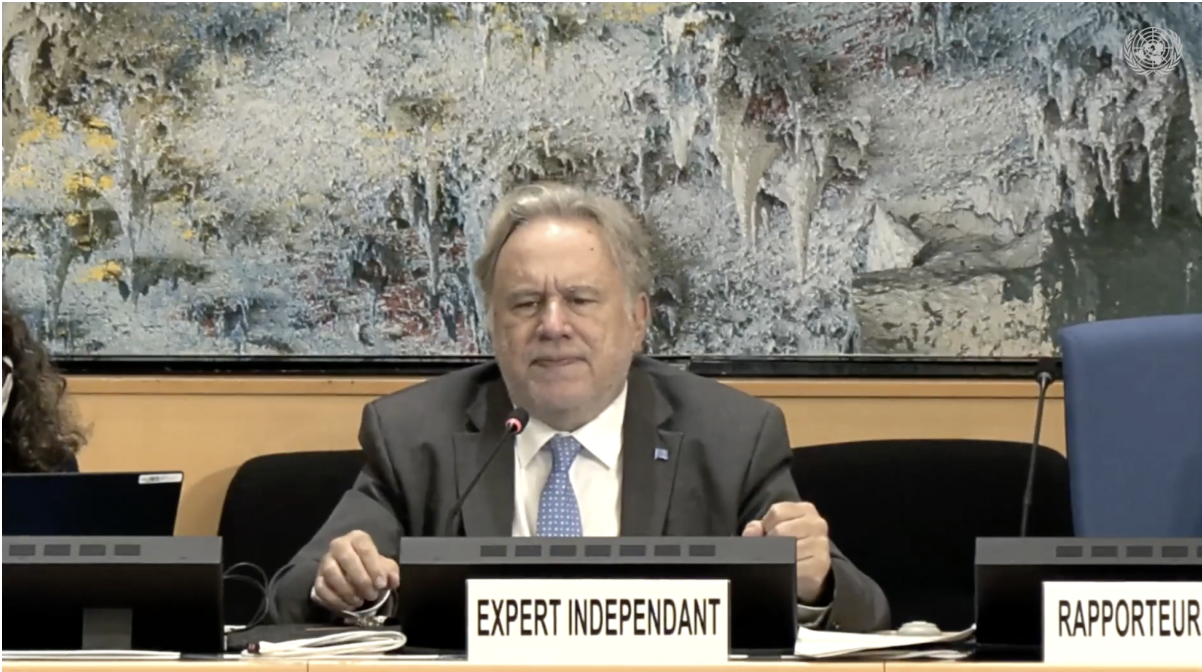
By Maria Francisca R. Costa / GICJ
The Interactive Dialogue with the Legal Expert on the promotion of a democratic and equitable international order during the 8th, 9th, and 10th meetings of the 60th session of the Human Rights Council highlighted participants’ commitment to reform the international government and finance systems, reinforce the mandate of International Law and uphold the values of Justice and Human Rights.
The IE, Mr. George Katrougalos, expressed grave concerns over recent attacks on the territorial integrity of states, the international law system, and Human Rights norms. He also called for a more just, inclusive decision-making system that accounts for the needs of developing economies for the achievement of sustainable development.
Geneva International Centre for Justice (GICJ) expresses its concerns over the escalating use of unilateral force and sanctions on sovereign territory and the disregard for, and violation of, international law and Human Rights norms. Further, GICJ fully supports redesigning the international governance and finance systems, addressing the widening wealth and digital divide and ensuring global equity through more inclusive forms of governance.
Background
International order, as we met it after the end of the Second World War, has been under constant mutation. In recent decades, however, these shifts have been markedly characterised by a tension between the struggle for geopolitical and economic power and the forces of multilateralism. As the Independent expert on International Order explains in his report, “the erosion of the undisputed hegemonic position of the United States led it to a unilateralist foreign policy and a partial withdrawal from the United Nations Human Rights system”. Further, the country’s interest-oriented economic policy has undergone a shift from neoliberal to protectionist policies, as the US commits to redefining its’ participation in the international trade system.
Earlier this year, the United States announced cuts in billions of dollars in funding for development to major UN agencies. In July, the U.S. announced it would implement sanctions against the United Nations Special Rapporteur on Palestine, which UN experts condemned as a “direct attack on the UN Human Rights system”. Shortly after, the U.S. announced it would include Palestinian organizations Al-Haq group, the Palestinian Centre for Human Rights, and Al-Mezan, next to Addameer, to its sanctions list. On September 9th, Israel conducted a strike to reportedly target Hamas leaders in a residential area of Doha, Qatar, amid ongoing negotiations for hostage release and cease of hostilities in Gaza. UN Secretary General António Guterres called it a “flagrant violation” of Qatari territorial sovereignty. The U.S. has recently conducted several military strikes on boats suspected of drug trafficking from Venezuela.
The widening wealth and digital gap at the international legal order can be traced back to colonial systems and to a system upon which, as the IE on international order explains, “most global hierarchical structures within the international division of labour and capital remain entrenched”. In this context, we observe an “escalating concentration of international commodity production within global value chains”, where “commodity-dependent developing countries are reliant on demand-driven chains dominated by multinational corporations”. Further, many developing countries are trapped in a systemic cycle of debt and austerity policies that keep public goods underfunded. Similarly, the access to digital technologies is far from equitable, and the so-called “Global South” remains the victim of a system that fails to ensure affordable access to the internet, monopolises knowledge and keeps it technologically dependent. These are also the economies most vulnerable to the hazards of climate change, which more intensively face the consequences of environmental degradation in exacerbated food and water insecurity.
Summary of the Report of the Independent Expert on the promotion of a democratic and equitable international order
The Report of the Independent Expert on the promotion of a democratic and equitable international order highlights major shifts in the geopolitical sphere and identifies the main drivers of the North-South divide. These “key factors” include “resurging territorial ambitions, protectionist trade policies, climate injustice, unsustainable debt burdens, and persistent digital and knowledge gaps”. Structural reforms are flagged as essential to reframe global financial and political systems more equitably.
The international order has experienced several challenges in recent years, with the United States retrieving from major international organizations while experiencing a fall in its hegemony due to globalization, which in itself “exacerbated existing Nort-South divisions”. As the “Global South” reframed the Human Rights discourse, the US turned to a “unilateralist foreign policy and a partial withdrawal from the United Nations Human Rights system”. Recent trends in U.S. foreign policy warn us against the “explicit threat of territorial conquest”. Recently, Donald Trump’s policy marks an end to the “taboo” of “outright conquest” (with Panama, Greenland, the Golan Heights and Gaza serving as examples).
The new tariff system announced by Donald Trump’s administration impacts developing countries disproportionately. Its framework also indicates the U.S.’s geopolitical interest in addressing its economic rivalry with China. This strategy is, however, not new in a trend whereby economically developed countries have “consistently resisted the demands of the Global South” to reshape the international trade system. Moreover, the new tariff system erodes “the established norms of multilateral liberal internationalism”, the “transatlantic partnership”, and “neoliberal ideology”. A possible trade war, which will disproportionately affect developing economies, also threatens the survival of multilateralism.
The integration of leading developing economies into the G20 served to integrate the development discourse into the international financial order, rather than to democratize it. The system carries the legacy of colonialism and perpetuates the current widening of the North-South wealth gap. This marginalization is accompanied by increasing extraction of the periphery’s resources. Multinational corporations’ dominance over demand-driven chains compromises the potential of international trade to reduce poverty. The concentration of income on the hands of a few is sustained by policies which reward capital to the detriment of labour”. Global inequalities will deepen insofar as structural reforms in tax, labour protection, and financial governance systems are not set in place.
The overexploitation of natural resources, primarily driven by developing economies, is a major cause of the climate crisis. This crisis is also a catalyst for poverty and rising inequality, phenomena to which developing countries are the most vulnerable. Global warming and extreme weather events exacerbate water and food insecurity. Productivity remains lowest where dependence on primary commodities has been established. Local populations are the most vulnerable to the externalisation of the social and environmental costs produced by multinational corporations' activities. The Independent Expert warns us that “climate policies implemented without redistribution mechanisms are likely to exacerbate inequalities”. The safeguarding of justice must, therefore, be part of environmental policy-making.
The debt crisis currently faced by developing economies is exacerbated by "procyclical policy prescriptions” adopted by major players of the international financial architecture, namely the World Bank and the International Monetary Fund. The potential for development of targeted nations is undermined by several constraints to independence in infrastructure, industrial, and climate policy-making. The resources mobilized internationally at present are insufficient to counteract the “compounding burdens of climate change and debt”.
Addressing the digital divide in both developed and developing economies requires “the implementation of affordability policies and digital literacy programmes. International governance must also intervene in ensuring the ethical deployment of artificial intelligence technology. The asymmetric global distribution of "cognitive, scientific, and technological capabilities” further exacerbates the marginalization of developing economies, from where capital frequently outflows amid production chains.
A recent proliferation of multilateral trade agreements represents a move towards “deeper regional integration”. The IE suggests that power rivalries in the global economic space can be “moderated” if the European Union achieves greater autonomy from the U.S. and improves its relations with the “Global South”.
The report calls for a global adaptation to “new power realities”. The survival of multilateralism depends on the inclusion of “Brazil, India, the African Union and the Muslim World” as well as non-state actors in international governance, as well as on the pursuit of the Pact for the Future. Major institutions, such as the Security Council, the International Monetary Fund, and the World Bank, must undergo a “comprehensive policy reform”. A new, “Global-South”-owned, “global regulatory delivery index” is needed to "address the regulatory deficit concerning Human Rights and development. The authority of the ICJ and ICC, as well as their access by developing nations, must be reinforced. Debt restructuration is crucial to ensure just redistribution practices. Democratizing the use of digital technologies will ensure a more equitable access to connectivity, digital literacy, development technology, and regional research opportunities.
Summary of the Interactive Dialogue
Opening Statement
The report presented by the Independent Expert on the promotion of a democratic and equitable international order, Mr. George Katrougalos, analyses how recent trends in international politics “collide with permanent, structural drivers of inequality to deepen the North-South divide”. He reinforced that “structural inequities remain deeply embedded in the global economic order” due to the legacies of colonialism and an imbalance entrenched in international financial governance. Mr. Katrougalos also expressed that “Blatant violations of international legality…represent a direct attack on the integrity of the United Nations Human Rights system”, denouncing the U.S.’s recent sanctions against the United Nations Special Rapporteur on Palestine, Francesca Albanese.
Mr. Katrougalos reinforced that “structural inequities remain deeply embedded in the global economic order” due to the legacies of colonialism and an imbalance entrenched in international financial governance. He asserted that “developing countries are constrained by an unequal market access and limited participation in decision-making”. Further, he suggested that the global order is transitioning towards a series of “fluid, multilayered partnerships among states and regions”: “multi-alignment”. He pointed out the possibility of “fragmentation” as a consequence, but also expressed his hope to find “opportunities to revitalize multilateralism” - provided that we “democratize the United Nations ecosystem”. He called for strengthened regional cooperation and North-South initiatives, although he admitted that “these developments alone will not resolve structural imbalances”. He then reinforced that “effective multilateralism requires the engagement of not only states, but also non-state actors, civil society, and local communities”. He also referred to his recent visit to Iceland to recognise the country “as a model for advancing democratic values and human rights”, as well as “progressive governance”. Finally, he expressed optimism that “we can build an international order that serves the common good and upholds the rights and dignity of all peoples”.
Country Statements
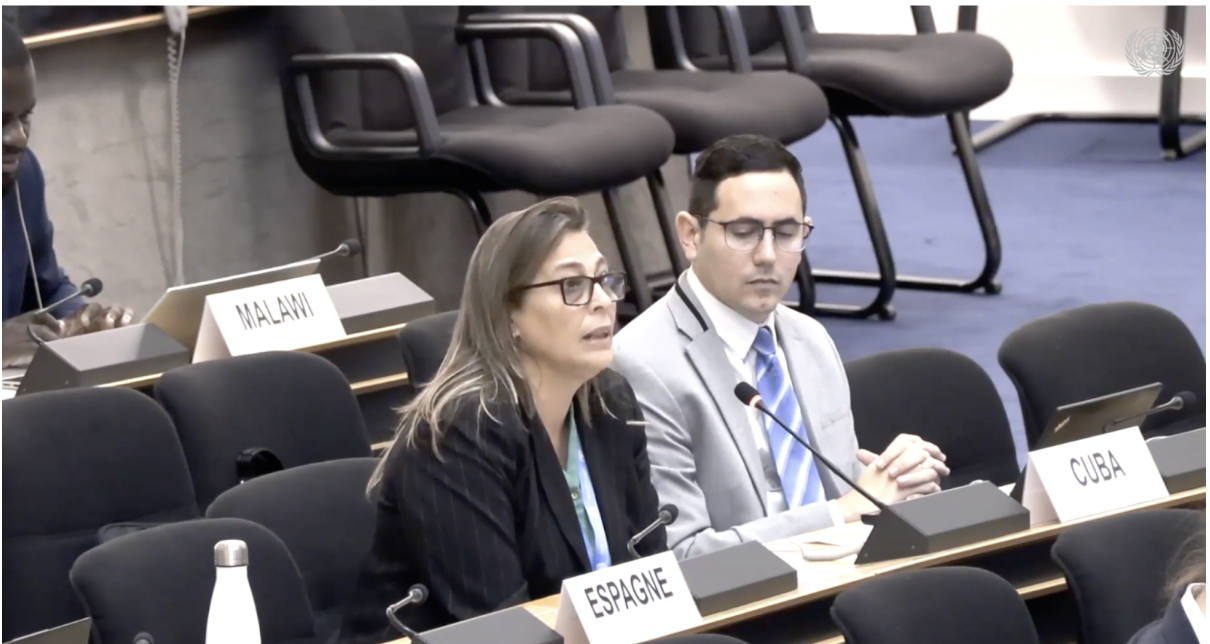
On behalf of the Friends of the UN Charter, Cuba recalled the values of "sovereign equality of states, non-interference in domestic affairs or external affairs; sovereignty over natural wealth and resources; and the exercise of the right to self-determination and peace”. The speaker expressed concern over the recent deployment of U.S. military forces in Latin America and the Caribbean. Further, the delegate condemned “the use of force against the sovereignty, territorial integrity, and political independence of Venezuela”. The delegation urged the U.S. to restrain from hostile actions in Venezuela.
The speaker, this time on behalf of Cuba, voiced her concerns over a divide that is “systematically” worsening, and over an “unsustainable” international order, exemplified by global wealth disparities and the digital gap.
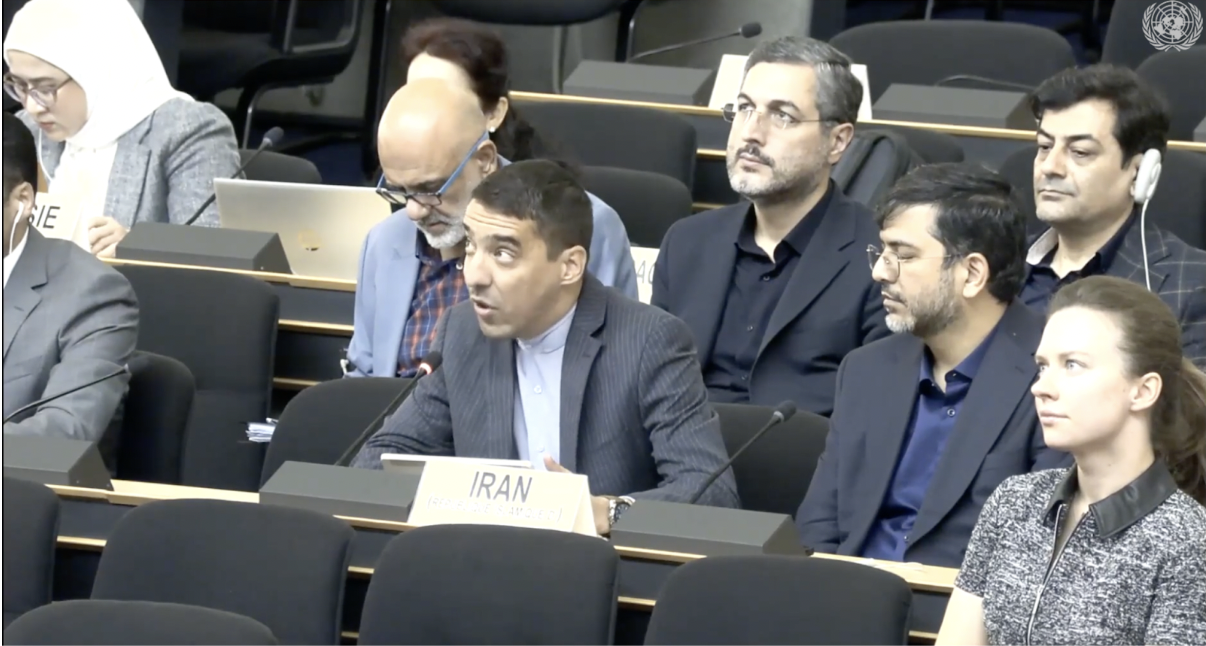
The delegate of Iran welcomed the IE’s work, affirming it can contribute towards “restoring credibility of the United Nations”. He voiced concern over the “repeated aggression” to which West Asia is subjected, and questioned “How can existing international legal mechanisms, particularly the International Court of Justice, be empowered to address systemic violations of the Israeli regime?”.
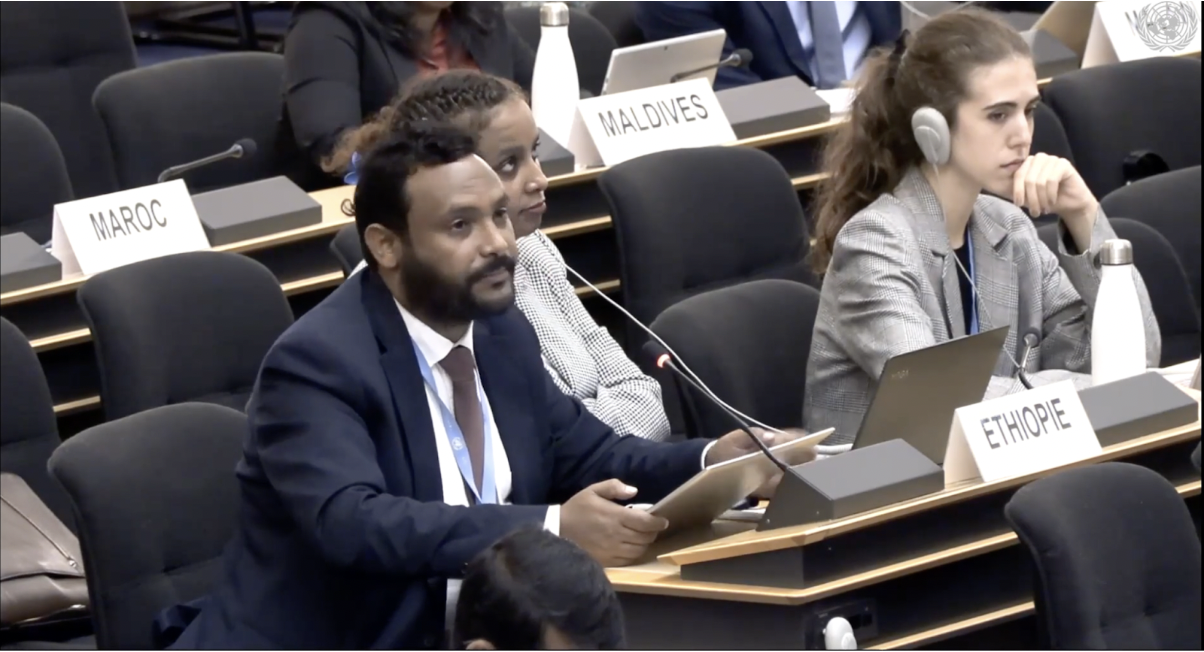
The Ethiopian representative called for the reform of global financial institutions and a "strengthened climate finance” echoing “the principles of common but differentiated responsibilities”.
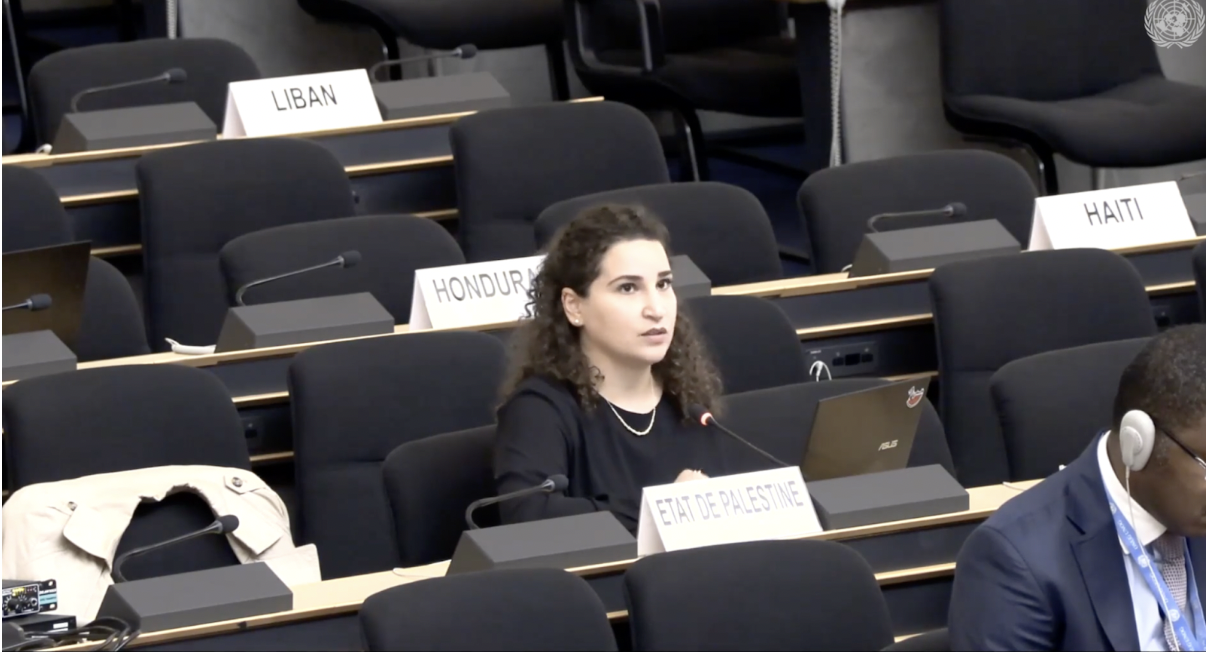
The delegate for the State of Palestine reiterated that “For the Palestinian people, (the IE’s analysis) is not abstract”. “We endure an ongoing genocide” - she explained “while living the daily consequences of the colonial order that the report so clearly describes. Israel’s illegal occupation and apartheid regime are rooted in the same extract of logic that drains trillions from the global south”. Further, she posed Palestine as an example to the dangers of a resurging aim for territorial conquest, as described in the IE’s report: “The recognition of Israel’s annexations and ongoing rhetoric on Gaza epitomize the dangerous erosion of the very principles of sovereignty and non-acquisition of territory by force”. Finally, she added that “the Security Council cannot remain frozen in a structure that denies permanent representation to Africa, Latin America, Asia, and the muslim world, while one permanent member shields Israel from accountability”.
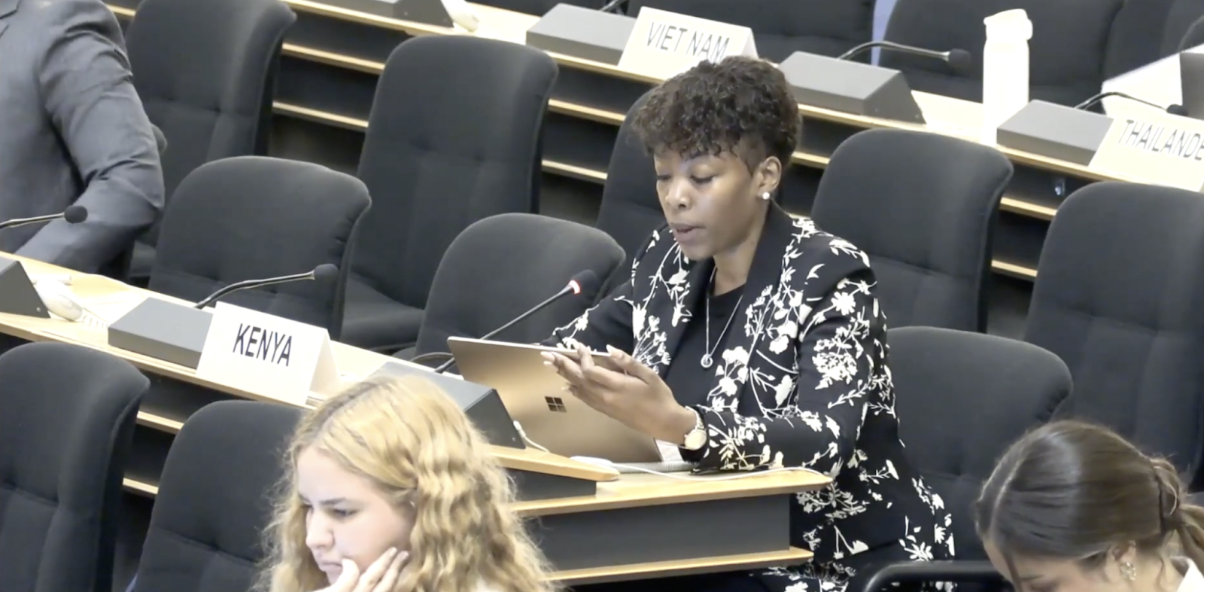
The delegation of Kenya insisted that “the persistent exclusion of Africa and the wider global south from core institutions of global governance is not merely a historical injustice”: rather, they are a “threat to the legitimacy and efficacy of the international system”. Moreover, the speaker emphasized that “the digital divide is no longer a question of access, it is a question of power: Without digital equity our youth are locked out of the future and our economies remain tied to outdated models designed elsewhere”.
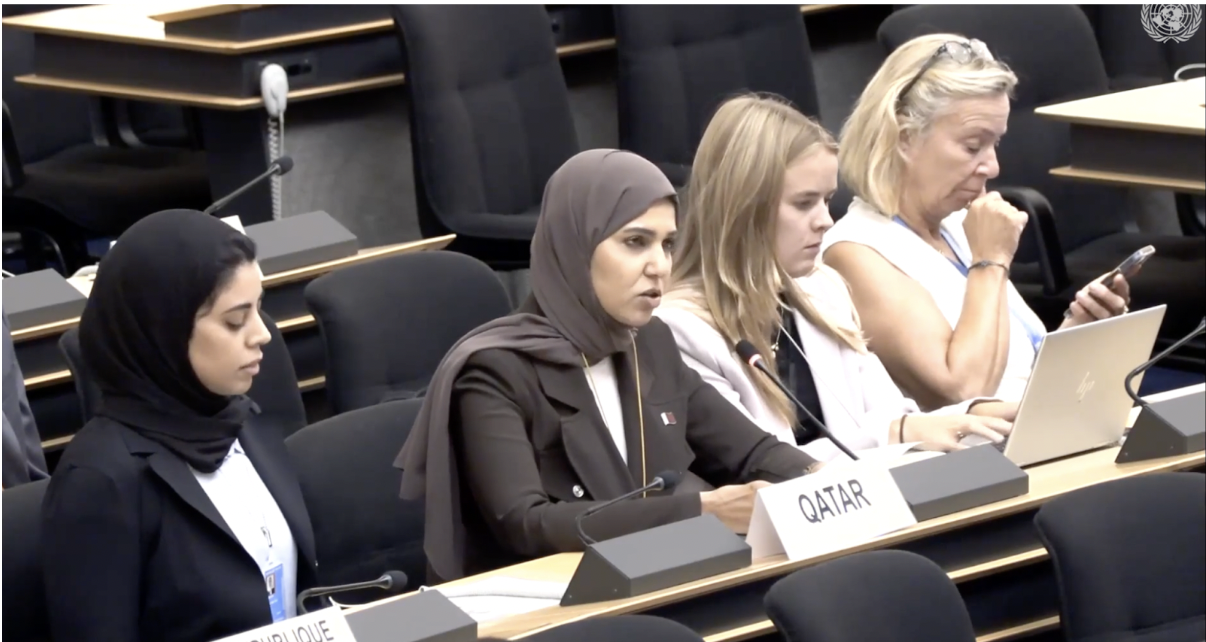
Qatar’s representative condemned the recent Israeli attack “in a location close to schools,embassies and mosques”, claiming the lives of the innocent. This attack represents a “gross violation of the UN charter, International Humanitarian Law and Human Rights”, further disrupting “the negotiation efforts being made by states in the field of diplomacy.”. The representative called for the condemnation of the attack and for its perpetrators to be made accountable.
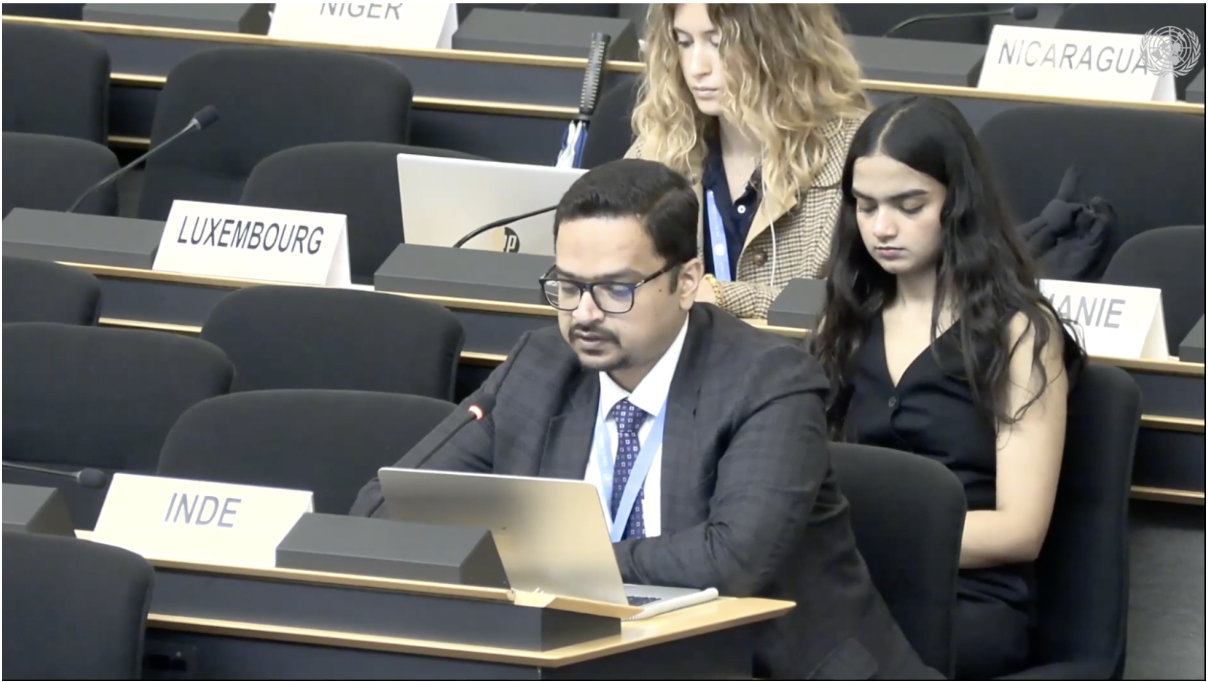
The delegation of India defended that, without the necessary reforms for global institutions to “reflect new realities”, they risk obsolescence and becoming “increasingly disconnected from the people they are intended to serve”. The delegation also explained how “India’s experience with digital public infrastructure demonstrates how technology can bridge inequalities when properly designed and implemented”.
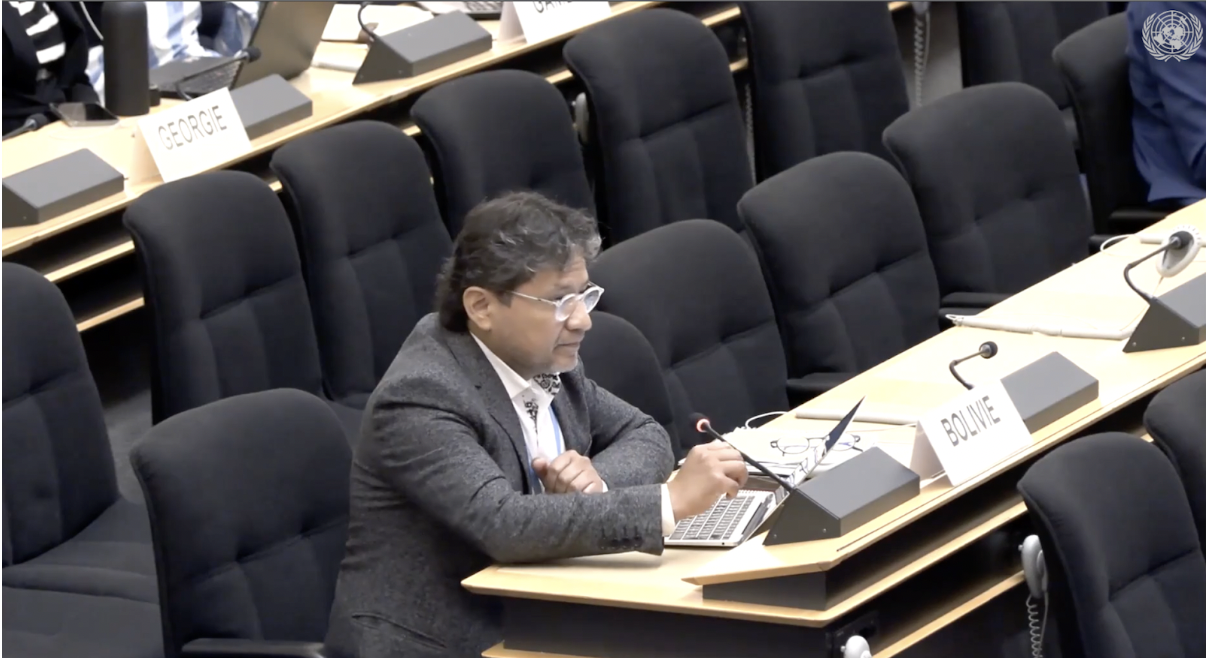
The Bolivian representative reinforced the importance of solidarity towards the Palestinian people and established multilateralism as key to tackle global challenges. The speaker also called for attention on “land-grabbing practices by foreign investors” and for “digital solidarity, which would secure “low-cost connectivity, content available in local languages, and digital literacy for marginalized communities”.
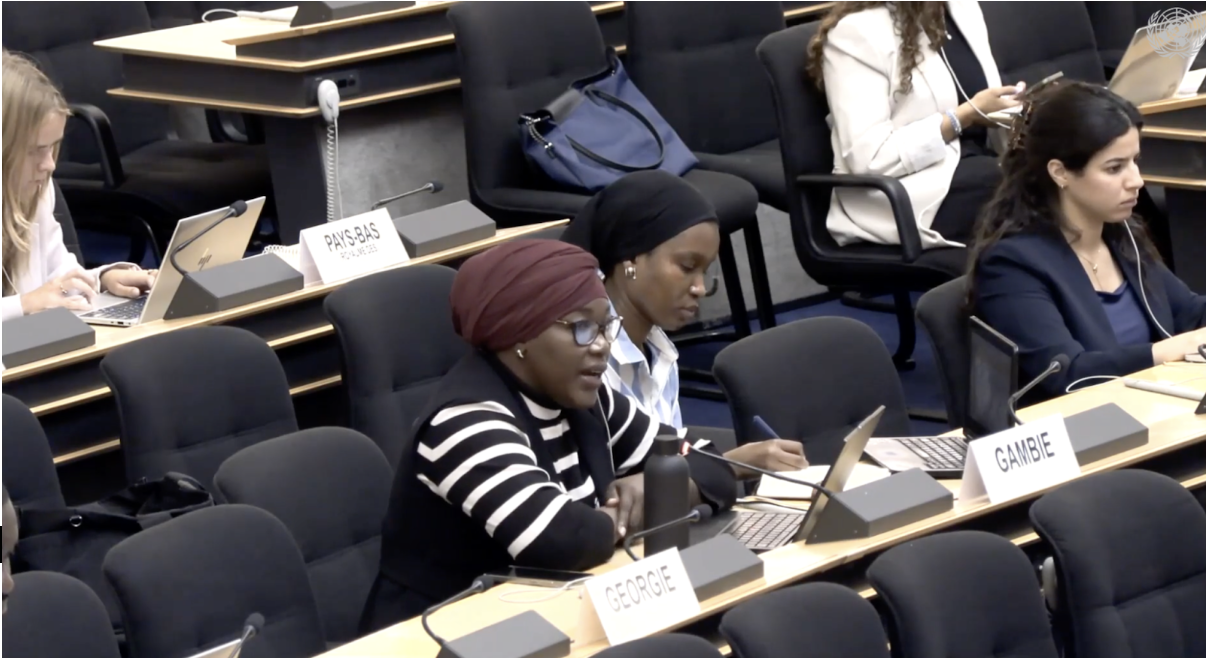
The delegate of Gambia reiterated the interconnectedness of debt relief and digital equity: “these are two sides of the same coin: because without debt relief, we lack fiscal space, and without digital equity, we risk leaving our people behind”.
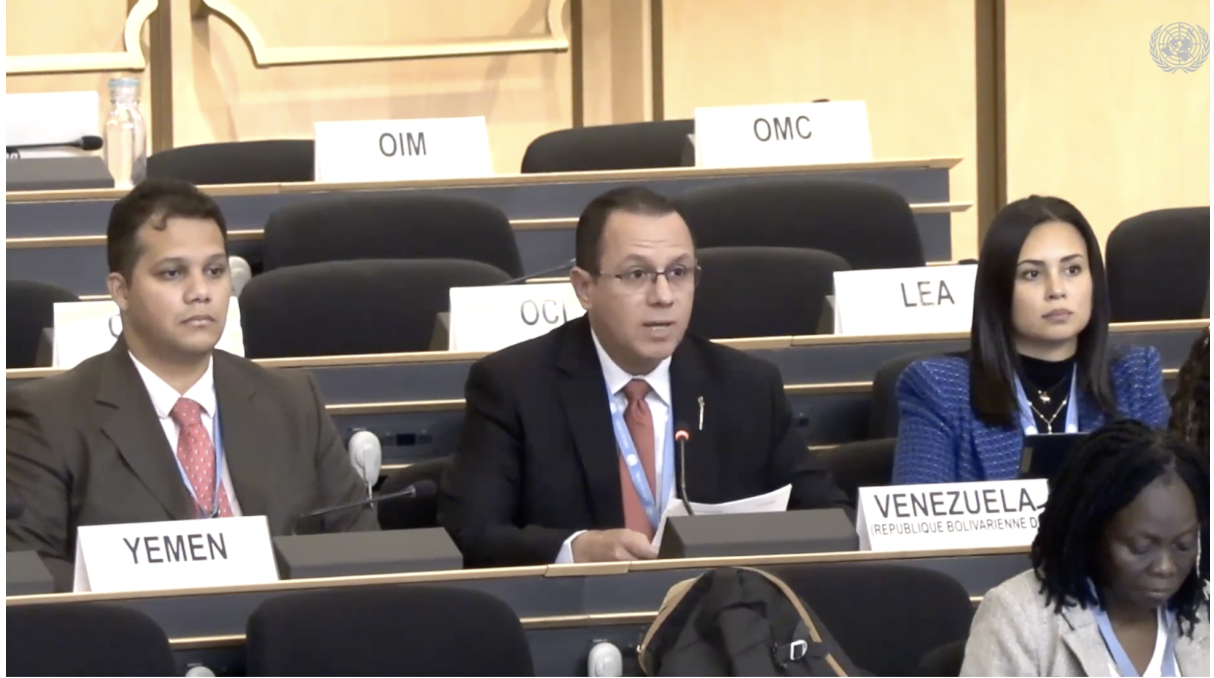
The representative of Venezuela argued that “The idea of having a linear formula through which peace is obtained by force has led the United States to deploy land, air, and other forces in the Caribbean, threatening the peace of many states”, condemning the U.S.’ actions and comparing them to the recent Israeli actions on Qatar.
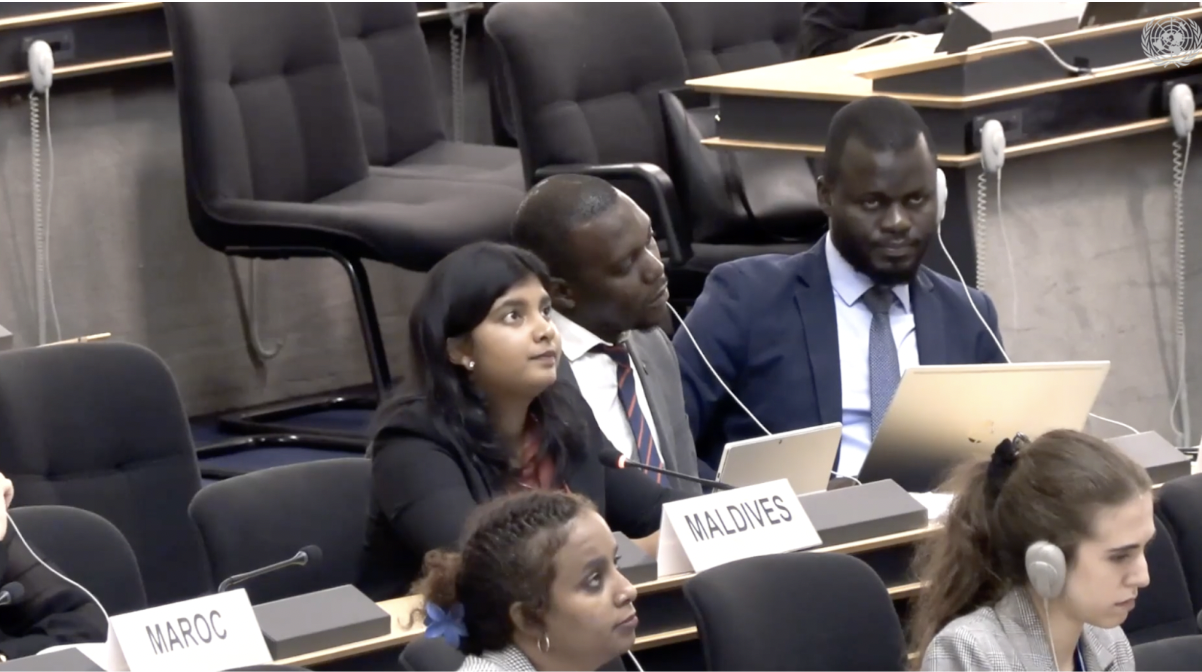
The delegate of the Maldives asserted the country’s commitment to generate one third of its electricity from renewable sources by 2028. The speaker also voiced concern by the “suffering” in Gaza and occupied Palestinian territories, calling on member states to hold Israel accountable and “ensure urgent, unhindered humanitarian access to Gaza” and reiterating its support for the establishment of a Palestinian state.
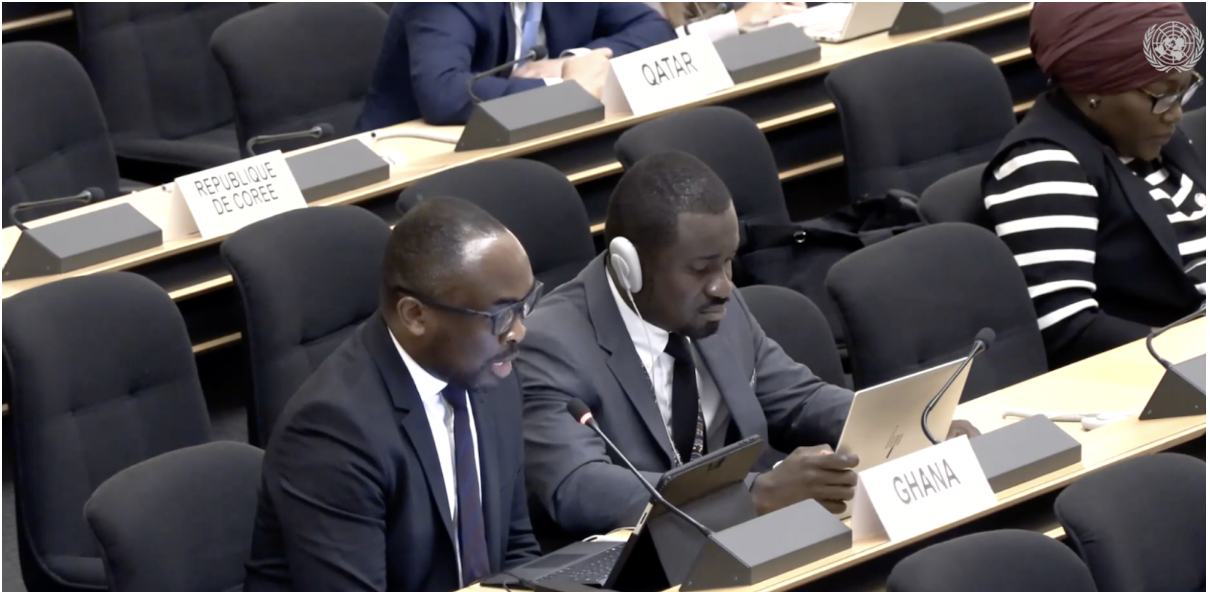
On behalf of the group of African states, the representative of Ghana welcomed the Independent Expert’s recommendations and asserted that “the Global South must be…treated as equal partners” in organizing the international order.
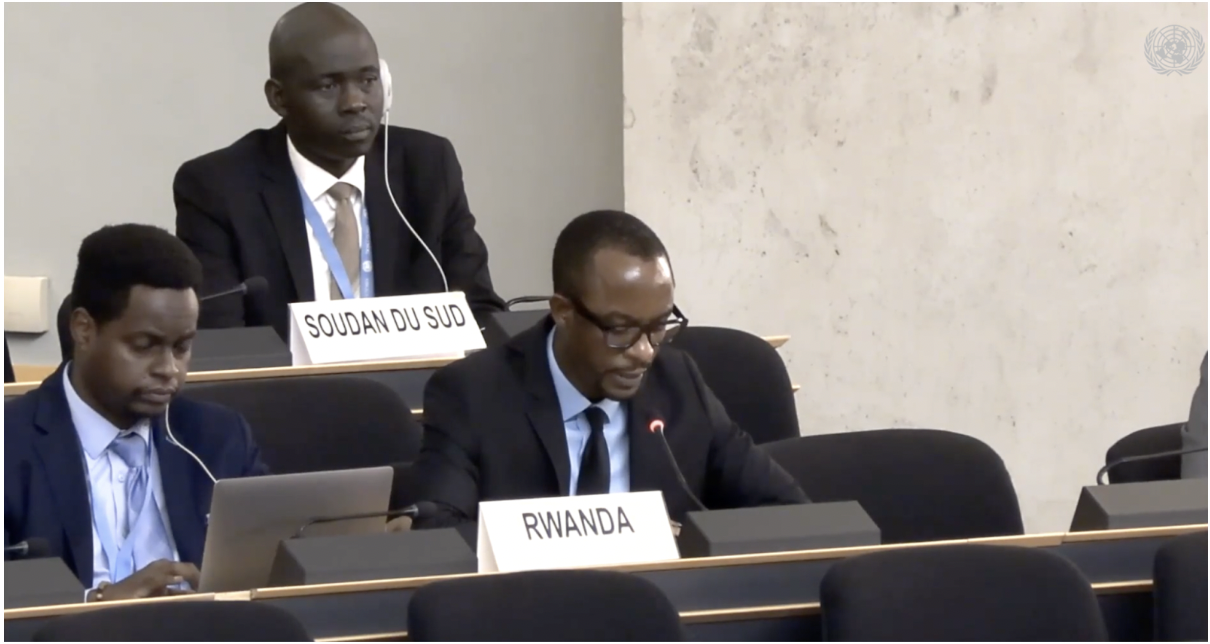
The Rwandan delegation warned that any “attempts to export a single model or to politicize Human Rights…weaken the very international order we seek to strengthen”.
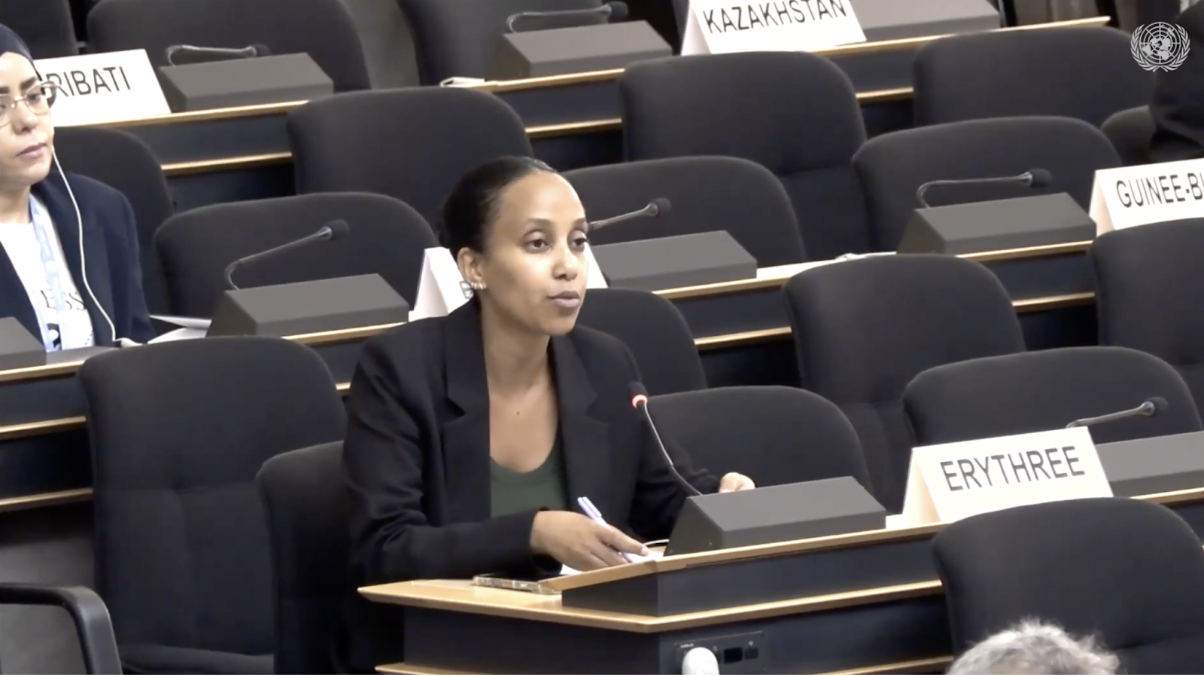
The representative of Eritrea voiced the inconsistencies in the current international order: “The Global South cannot be asked to bear the cost of crises it did not create,..., all while being excluded from shaping solutions”.
Non-Governmental Organizations
Participating NGOs expressed similar concerns regarding the reinforcement of a North-South gap and a weakened enforcement of international law. Concerns were expressed over the U.S. unilateralism in the UN Security Council” and its consequences for the enforcement of global decision-making, with reference to the UNGA-adopted resolution to “terminate genocide in Gaza”. The U.S.’ individual sanctions against Palestinian Human Rights organizations were discussed as being “part of a broader pattern of repression aimed at Palestinian civil society”, further eroding “the very foundations of the international legal system, putting the global pursuit of justice at risk”. The recent actions of the United States of America were declared to “undermine independent UN mandates, weaken accountability for international crimes, and sustain the impunity of violations”.
The heavily militarized area of Kashmir was used to exemplify the erosion of multilateralism by the resurgence of territorial ambitions. The Council was urged to “pressure the (Sudanese) army to end their actions and to respect Human Rights, and allow the Sudanese people their right to self-determination”. The president was asked ““How can we hope to have a democratic and equitable international order when so many governments in the world and the main multilateral institutions have shown that they have not been able to stop the genocide in Gaza?”. A speaker urged the Human Rights Council to facilitate the recognition of indigenous diplomats by the United States of America and Switzerland, home to the UN’s General Assembly and Human Rights Council, respectively. Further, he requested revision of the Joint OHCHR Inter-American Commission on Human Rights and help stop deadly threats to indigenous peoples, and requested their equal participation at the international stage. The Independent Expert was questioned on the Report’s assumption that Pax America “is really disappearing into History”. In order to navigate the new global order, the UN “may need to be ready to shift from universalism to pluralism”, the organization defends.
Conclusion
The Independent Expert’s concluding remarks focused on the “dangers of impunity, the lack of accountability, and the selective application of international law”, which “weaken the accountability of the United Nations system… and pose an existential threat to the international legal order”. He denounced the normalization of protection of “unlawful acts by permanent members of the UN Security Council, which “normalize systemic violations that corrode the very foundations of international law”. Mr. Katrougalos exemplified the statement with the recent Israeli attack on Qatar, which “clearly undermines the efforts to mediate a peaceful end to the conflict and ensure the access of humanitarian relief into Gaza”. Further, he stated that the United States’ withdrawal from UN negotiations on financing SDGs and its refusal to increase lending to developing countries’ financial institutions “have only deepened an already dire situation”.
Despite the international order’s North-South division, Mr.Katrougalos believes that “the interests of the vast majority of people in developing countries are parallel, not opposed, to the ones in the global south”. Citing the UNDP, he affirms that there is also a south in the north: the 90% of the population who is not profiting from globalization”. Moreover, he confirmed opposition to unilateral sanctions implemented without the decision of the UNSC. He concluded with a series of recommendations “aimed at strengthening multilateralism, ensuring fair economic governance, and embedding redistribution and sustainability into policy frameworks”. These included the democratization of international financial institutions and of trade rule-making and the end to subsidies jeopardizing developing economies. He further highlighted the idea that closing the digital divide is a fundamental step to reduce the north/south divide. It is by “enforcing international law, protecting sovereign equality, and promoting multilateralism”, he defends, that we can achieve justice and peace.
Position of the Geneva International Centre for Justice
Geneva International Centre for Justice (GICJ) commends the report of the Independent Expert on the promotion of a democratic and equitable international order and welcomes its recommendations. GICJ remains concerned about the recently-observed trends of escalating unilateral use of force and sanctions on sovereign territory and the disregard for, and violation of, international law and Human Rights norms. All actors involved in the ongoing genocide in Palestine and in the illegal occupation of Palestinian territories must be held accountable and the mechanisms sustaining their impunity vis-a-vis international law must be dismantled and condemned. GICJ urges states to take action against the violation of the territorial integrity observed in Qatar and Venezuela, and to rebuild the international system in a format that will prevent similar violations of international law to take place and do so with impunity.
GICJ fully supports redesigning the international governance and finance systems, addressing the widening wealth and digital divide and ensuring global equity through more inclusive forms of governance. These new systems must work together to uphold the principles of Equality, Justice, and Human Rights, and ensure the participation of currently marginalized, developing economies. Debt relief, climate action, and digital cooperation are three key pillars of a just future, without which sustainable development cannot be achieved.




